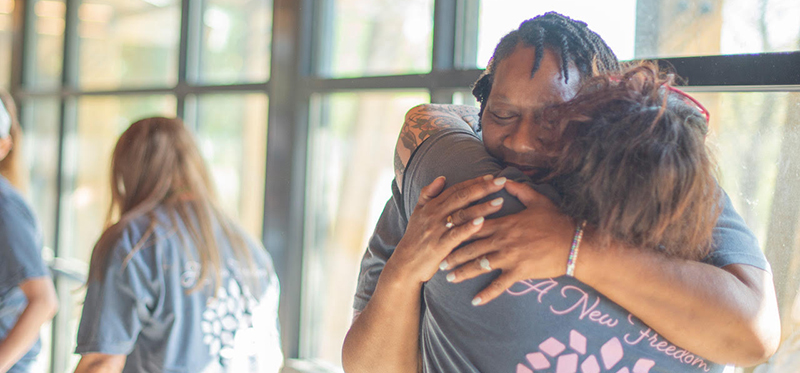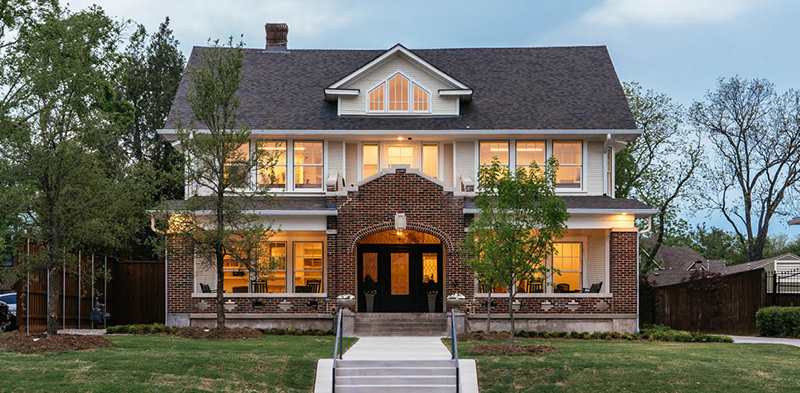Alcohol-Related Deaths are Rising Among Senior Women

Dallas-based resources for recovery are available.
Deaths related to excessive alcohol consumption are on the rise nationwide. It is becoming abundantly clear for American women, especially those over 65, according to a recent study published on July 28 in the journal JAMA Network Open. While men are roughly three times more likely than women to die from alcohol use, the gap is quickly shrinking, and the risk to women has grown tremendously.
The study reviewed data from the Centers for Disease Control and Prevention (CDC) on more than 600,000 deaths linked to alcohol between 1999 and 2020. The data included deaths from alcoholic liver disease, alcohol poisoning, acute intoxication, alcoholic cardiomyopathy, and mental and behavioral disorders that can be linked to alcohol consumption and other causes.
The data showed that alcohol-related deaths steadily increased in the United States over those 21 years. However, from 2018 to 2020, the rate increased by 14.7 percent for women compared to 12.5 percent for men. The study also found rising rates among senior women. Alcohol-related deaths rose in women over 65 and older by 6.7 percent from 2012 to 2020, compared with a 5.2 percent increase per year in men 65 and older.
One in 11 women suffer from alcohol use disorder, but so do one in seven men. Research has shown that women are about half as likely as men to seek alcohol recovery services. Women face different barriers than men when seeking treatment, including stigmatization, shame, family responsibilities, and socioeconomic barriers; they frequently have co-occurring disorders and are less likely to seek treatments. However, women are more likely to seek medical and psychiatric help, but when it comes to alcoholism, they may think the problem will get better on its own; thus, there is a lack of problem recognition. Therefore, alcoholism education to lessen the stigma around what it means to be an alcoholic is crucial.

Resources are available in D/FW to help individuals achieve long-term, sustainable recovery through spiritually based comprehensive programs hosted by The Magdalen House.
For Women:
- First Step Program: A two-week residential program for an alcoholic woman who wants to stop drinking but cannot. The house can accommodate up to 20 women with rolling admissions.
- Next Step Program: A three-phase, non-residential program that provides support and structure for an alcoholic woman at any stage of recovery. A non-residential program that provides support and structure for an alcoholic woman at any stage of recovery. This program is a continuum of care to First Step or as a standalone program. The Magdalen House will offer Next Step for men in early 2024.
For Women & Men:
- Community: Solution-focused meetings and workshops open to any man or woman in the community interested in learning more about the disease of alcoholism and the solution The Magdalen House offers at any stage of recovery. Services are currently offered for women 365 days a year, and the men’s schedule is available online here and is updated periodically as the program grows. Family Support meetings are also available to the families and loved ones of alcoholics and addicts.
- Resources and Education: Education about the disease of alcoholism and community partnerships that help connect alcoholic women, men, and their families to resources such as sober living, women’s and men’s health, and counseling.

If you’re an alcoholic who can’t stop drinking or a concerned loved one of an alcoholic, the first step in recovery is education and access to resources. In D/FW, The Magdalen House provides residential recovery, detox, group meetings, structured programs, family support groups, and tools to help individuals grow and sustain recovery. For more information, please visit https://magdalenhouse.org/.
The Magdalen House was founded in Dallas in 1987 and remains the only agency in the Dallas-Fort Worth area to offer comprehensive recovery services — without insurance or state funding — 100% free. The nonprofit is committed to helping alcoholic women and men achieve long-term, sustainable recovery through spiritually based, comprehensive programming. The organization presents the simple problem of alcoholism and a practical application of the solution.





